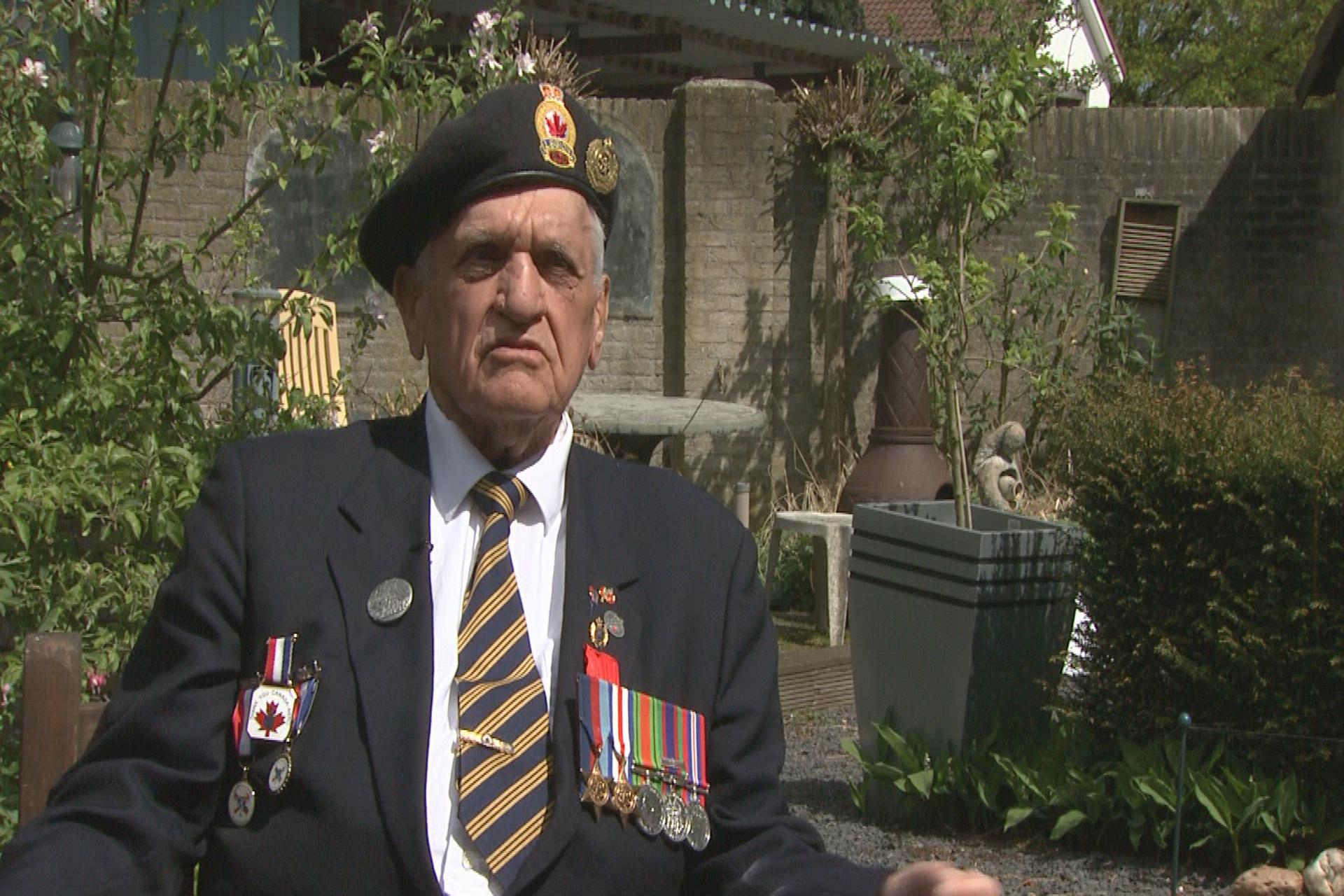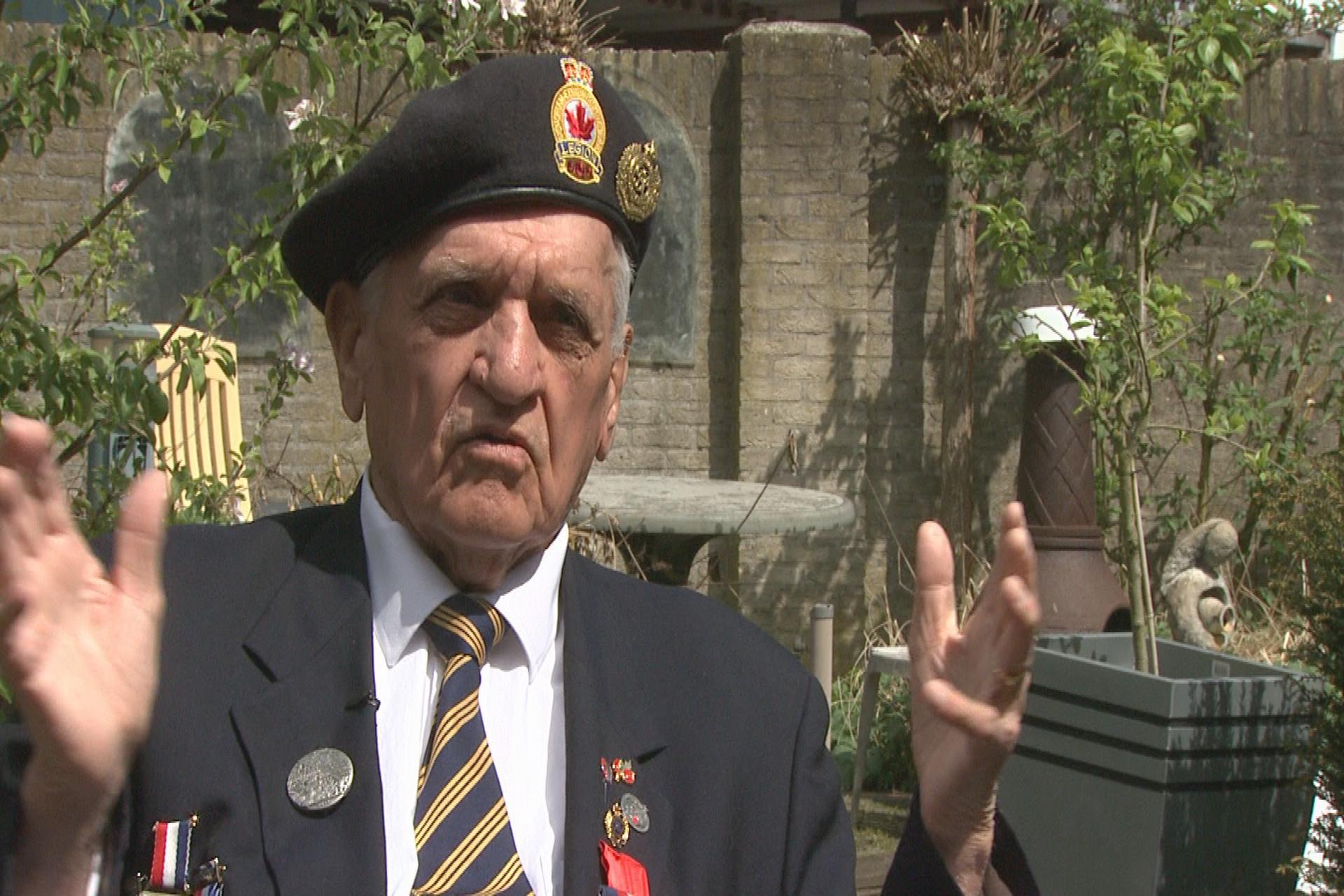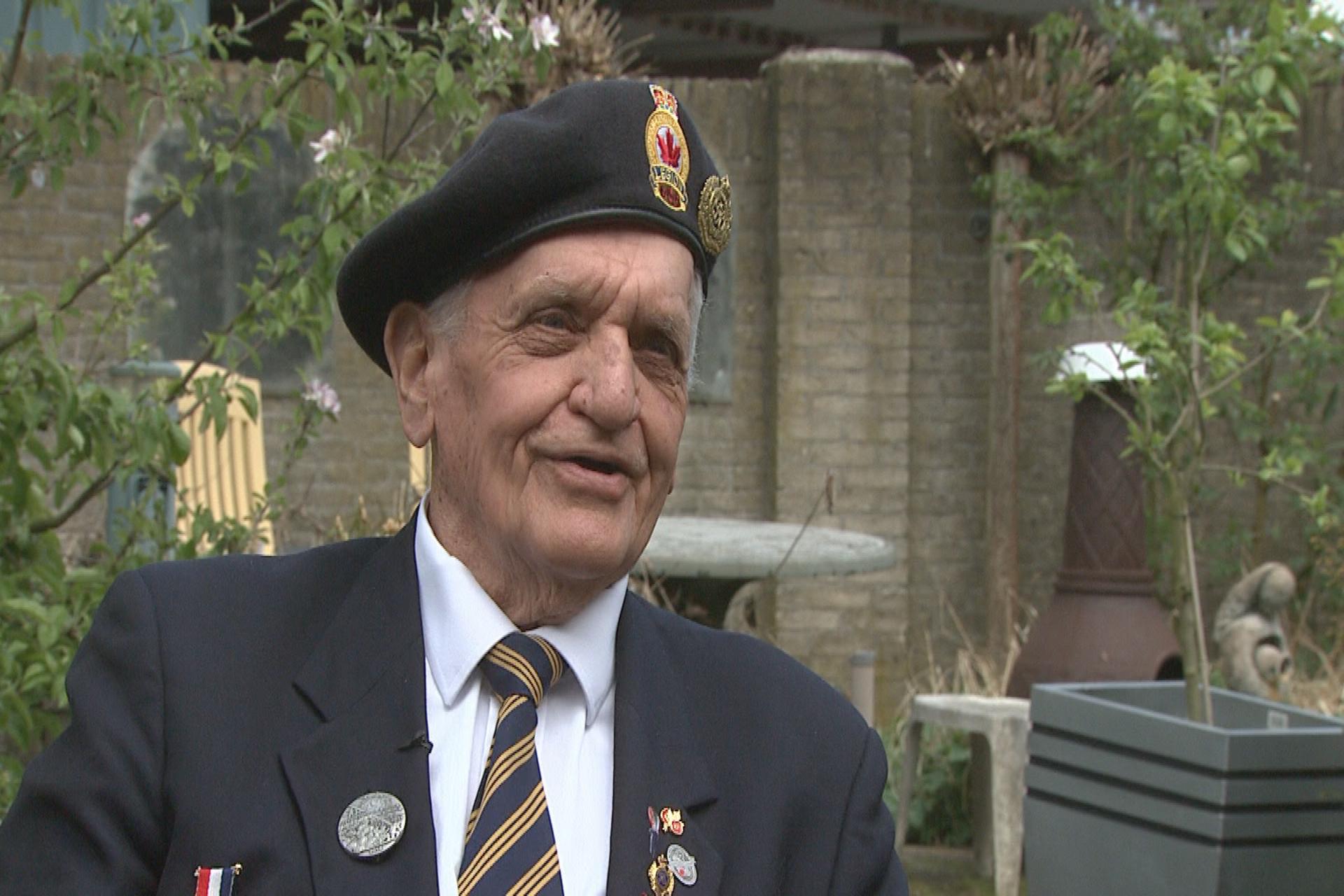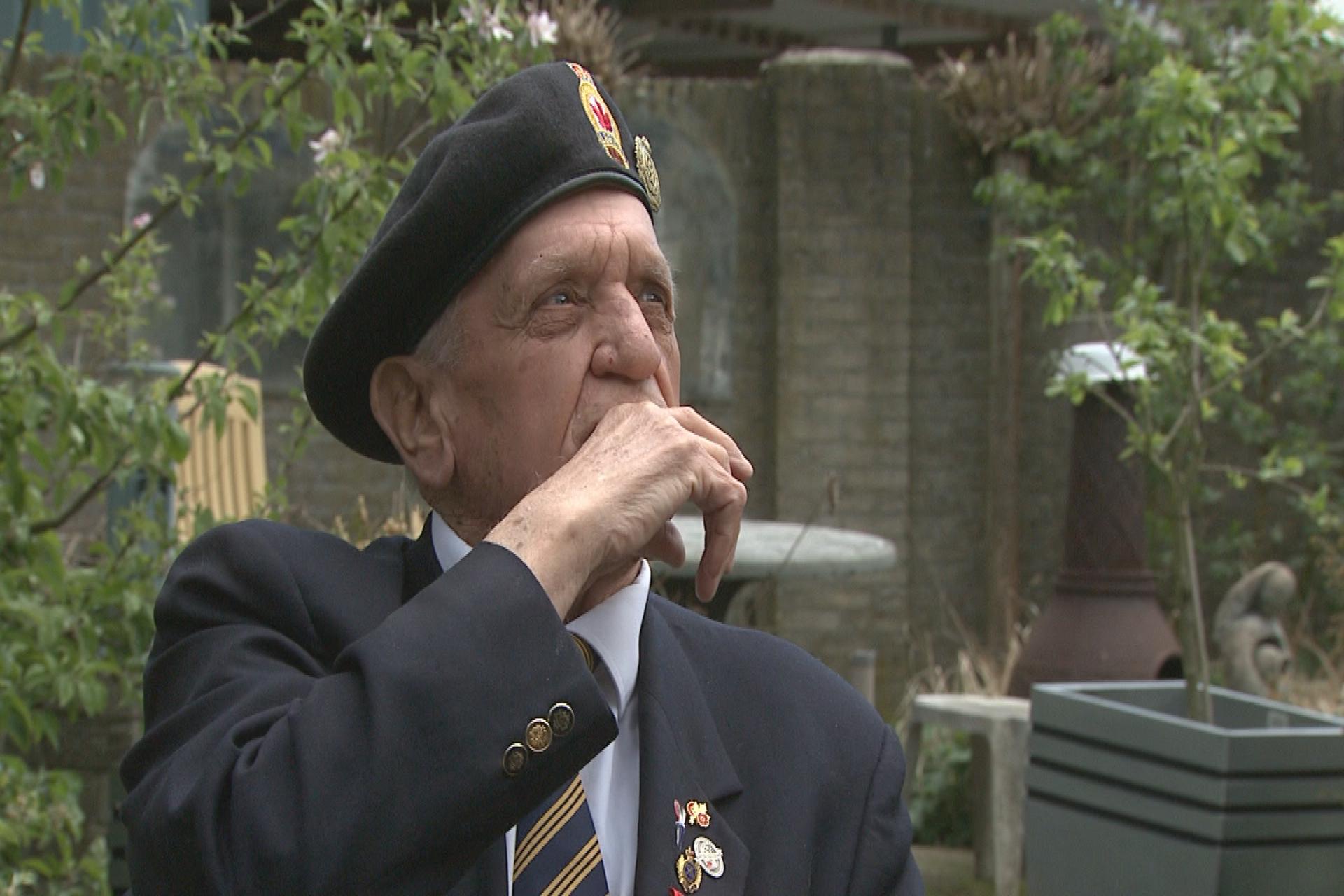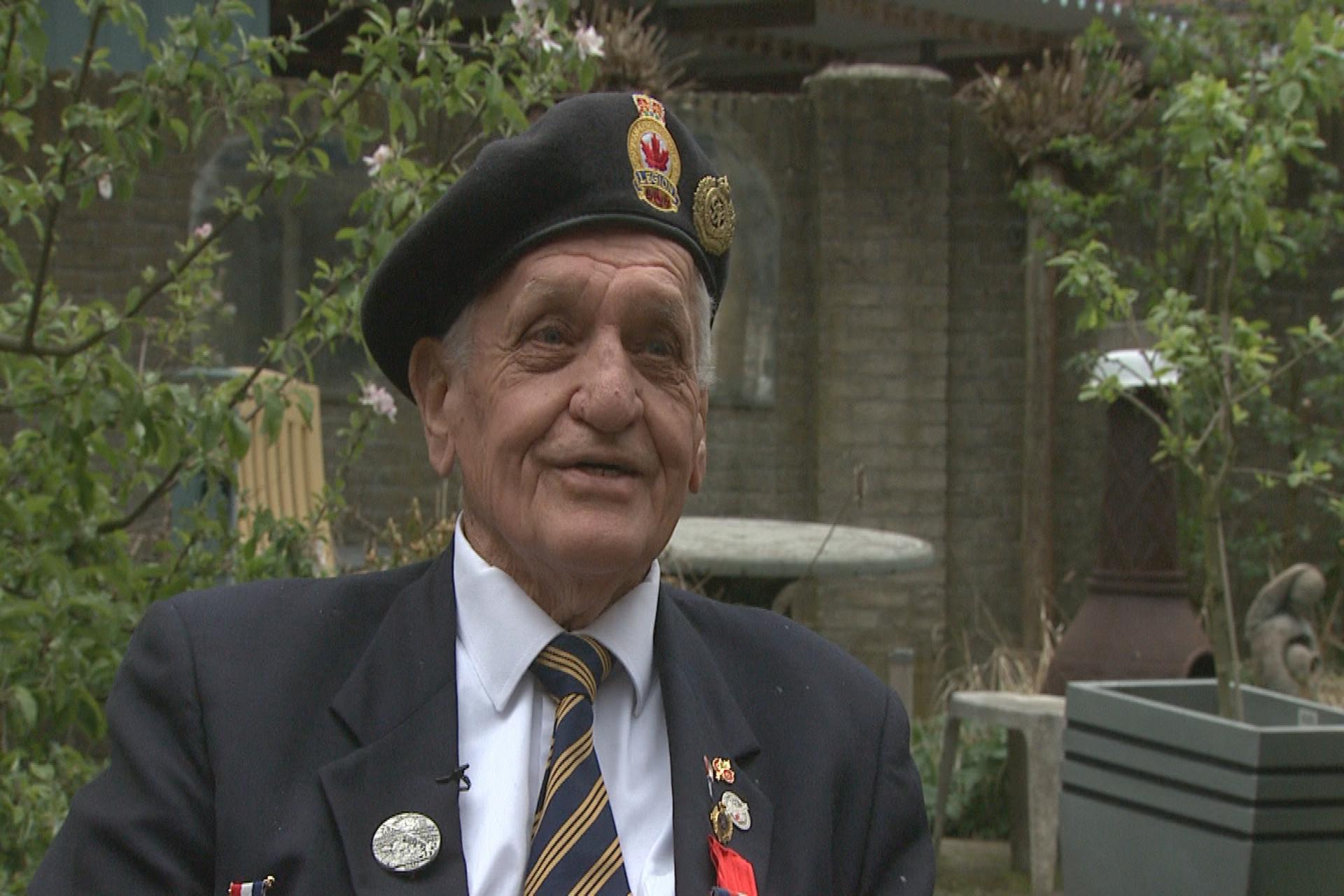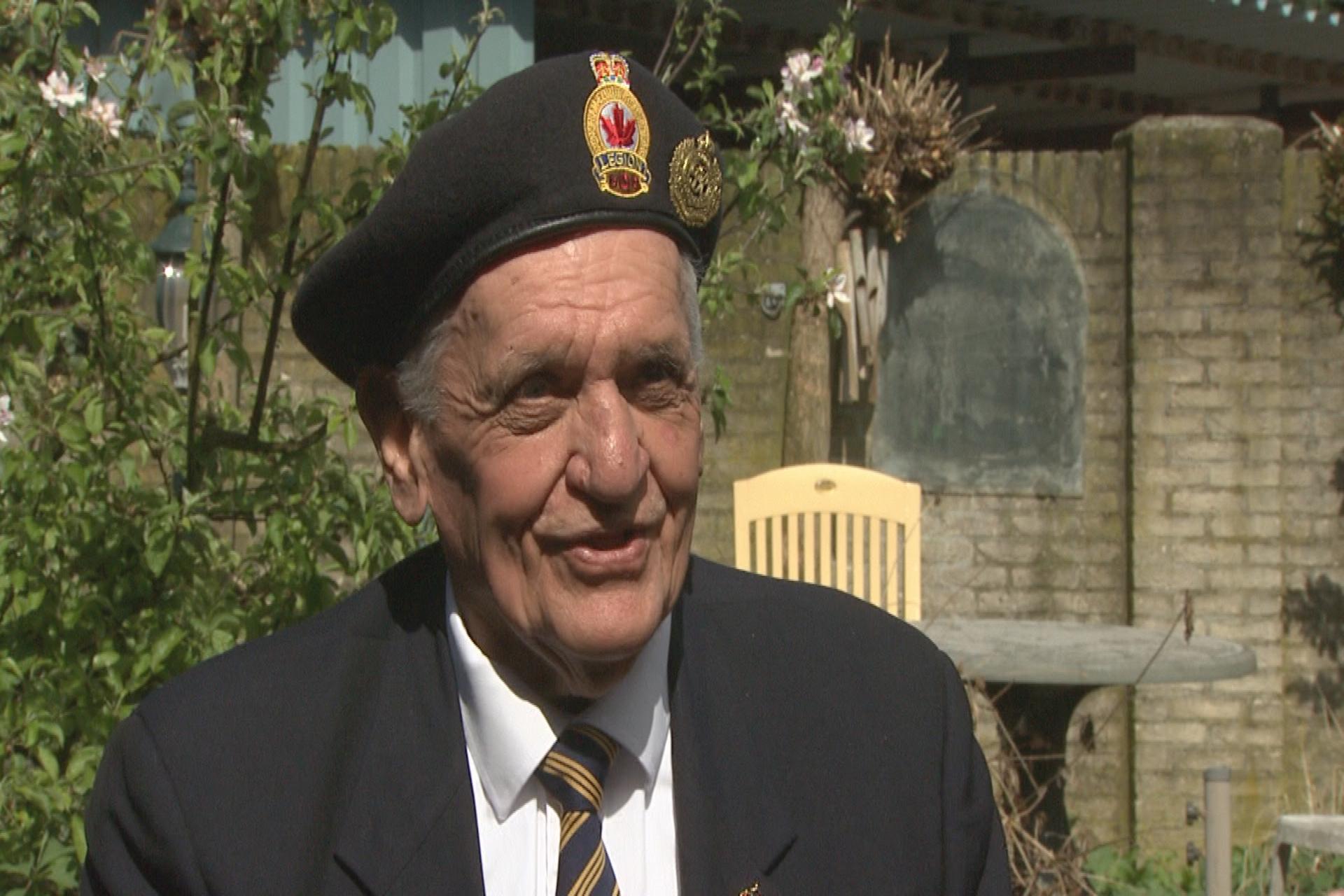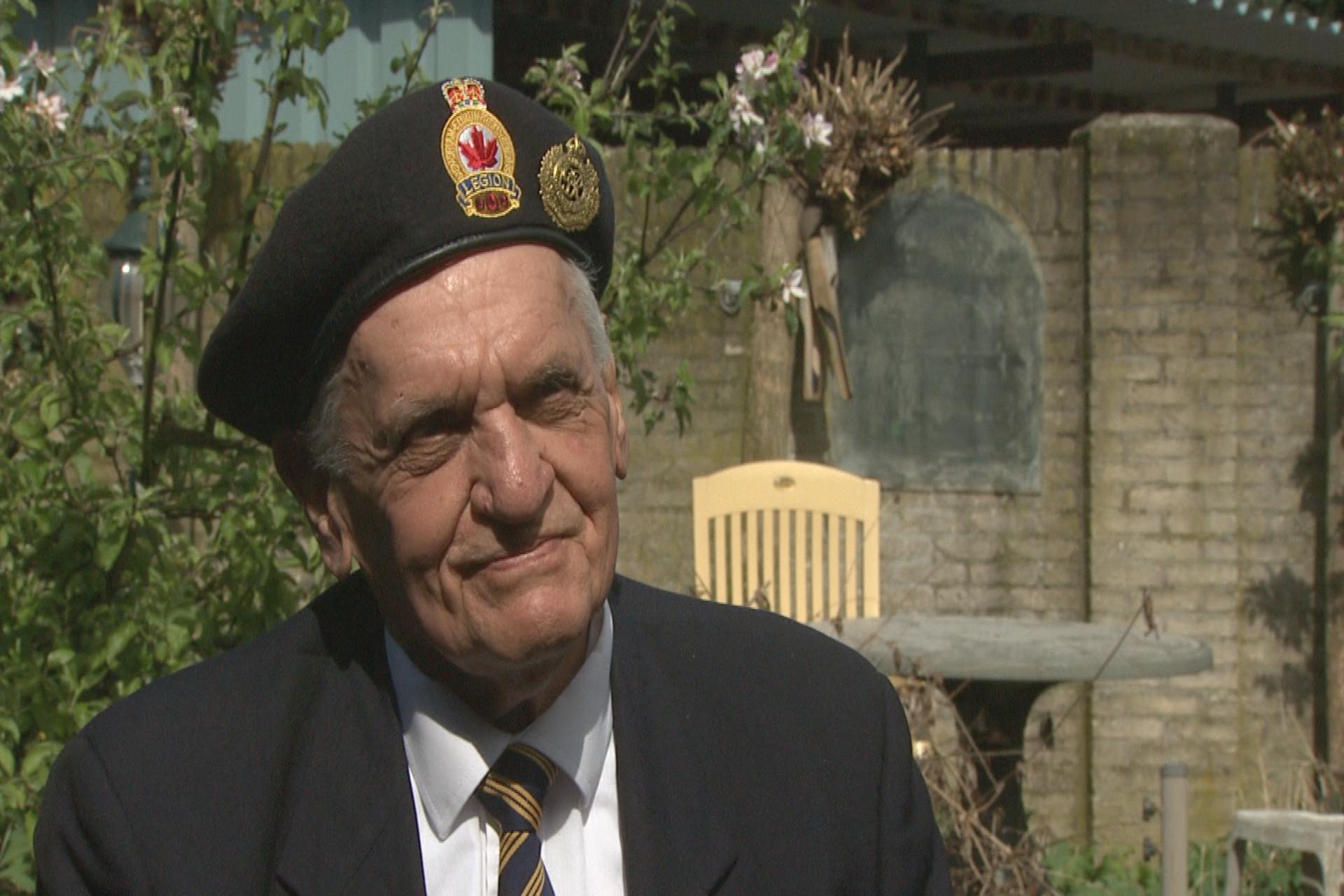Operation Duck
Heroes Remember
Operation Duck
Transcript
Well after our first wave there we sat
at this large barn affair and then they
notified us that we would have to make
a second wave, that the first wave
they had got over there they had so
many casualties that we would have
to put a second wave across for support.
So anyway we got all lined up,
the boats in the canal there and
the officer came up and said,
“Okay, you guys start now,
it’s okay your tanks are going to start fire
across the river and that for tank support."
So anyway, I got in the boat,
got it started up and back up a little and
my bowman had to push us back and
then I could start ahead.
We didn’t have reverse in those boats
then and they have a new motor.
Anyway we got turned around there and
I’m going up the creek there and
I just got out and I was just going to make
a turn there and I looked behind and
I don’t know, I looked behind,
I thought the boats were right behind me.
There wasn’t a boat at all.
So anyway I said, “Oh my God,” and
you could feel the fire, the bullets were
hitting all around the water, you know,
like you throw a stone in the water.
I said jeez if I stick my nose out there
we wouldn’t last two seconds.
So anyway, at the end there was a little
bit of a coast so I slid the boat in there and
I can remember some of the guys bitching say,
“Christ almighty Sommerville, they’re only
about six inches above our heads!”
So I said, “Well what we can’t do
nothing if we go out right now we’ll be cut,
you won’t last two seconds.” I said, “I know,
I’ve been out there in these cross fires.”
So we wait for five minutes and
finally the boats start coming out.
But what really happened, the prop,
we overloaded the infantry and that and
when they sat down where the propeller
is sunk into there and it hit rock and
the propeller sheared the pin.
I found out after when I come back
what the real problem was.
So he had to take the motor, pull it up,
knock the pin out, the copper pin and
put a new pin in there and
put the propeller on and then put
the pin through there and that’s what
held us up for that five or six minutes.
In the meantime once I looked down
I seen the boats come up,
I let one go by me and I slipped right
in beside it, you know,
beside them so we were going along
close to the shore because we had four
or five tanks along there and
I could see they were giving us
cover fire on the other side.
So all at once I see these two boats and
I noticed, the two boats were there and
I’m right here and all at once I look and
there’s no boat at all and
all the guys are standing in the water.
So I said, right now I said I’m broadside,
I got to get this way and
I wheeled it around and went straight into
the far bank on the other side of the river.
And that’s when the guys jumped out and
I was lucky that way, everybody got out but
there was two guys got stuck in the mud,
they were a little longer getting to the shore.
When I came back there was only
two or three guys left,
the most of them drowned right there.
There was an officer come down and
pull two guys out. But what happened,
with their life, we never had
life belts on but those infantry
did but with their web,
they had something that hooked on but
they had it the wrong way and
they couldn’t unhook to let all their web and
slip that off and that’s what pulled
them right down.
And that officer when you look in that book,
I think he got an officer’s reward,
one of the highest, you know, because
he did rescue two or three of them,
I’m not just sure and the rest perished.
Description
Just nine days before the war ended, Mr. Sommerville recalls his adventures in “Operation Duck.”
Donald Sommerville
Mr. Donald Sommerville was born September 19, 1922 in Chatham, Ontario. Mr. Sommerville grew up on a farm and attended public school. He and his buddies decided to join the army and left for overseas as part of the Royal Canadian Engineers. Mr. Sommerville became part of the 23rd Royal Canadian Engineers, 3rd Canadian Infantry Division. He takes pride in the service provided as part of “Operation Duck” - an operation that lasted nine days before the war ended. Mr. Sommerville has returned to Holland for commemorative anniversaries. He now resides in Ontario with his family.
Meta Data
- Medium:
- Video
- Owner:
- Veterans Affairs Canada
- Recorded:
- May 6, 2015
- Duration:
- 4:39
- Person Interviewed:
- Donald Sommerville
- War, Conflict or Mission:
- Second World War
- Location/Theatre:
- Holland/Netherlands
- Battle/Campaign:
- Liberation of Holland
- Branch:
- Army
- Units/Ship:
- Candian Royal Corps of Engineers, Electricians and Mechanics, 2nd Tank Troop Workshop
Related Videos
- Date modified:



